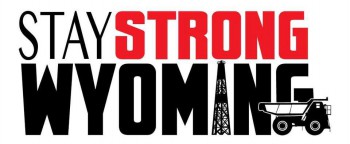(Wyoming Business Report, March 10) – A bill signed Monday by Gov. Matt Mead will expand the duties of the Wyoming Infrastructure Authority from only electricity infrastructure to “electric and energy transmission infrastructure.”
The change is primarily designed to give the agency a greater role in the development of coal infrastructure, particularly the kind that would allow state producers to more readily export coal from proposed deepwater ports that are under heavy public fire.
“We only export about 1 percent of our [coal] production out of the country to foreign ports so we can definitely improve on that and we’ll be working hard to do that in an advocacy role,” said WIA Executive Director Loyd Drain in a phone interview.
While the change will become official July 1, Drain said his agency will be doing a lot of groundwork before then to become more acquainted with the major players and the infrastructure already in place or that is trying to expand. He said that it is relevant to the agency, which has concentrated on advocating for more electric transmission, which thus unlocks the ability to build more in-state generation, including wind power. Similarly, he said ports are operating at capacity, making it difficult to produce more coal without additional capacity.
In the new capacity, Drain said he expects to take steps like commissioning studies that show economic benefit to communities surrounding new export ports. The agency has followed a similar path with electric generation, commissioning studies that show hundreds of millions of dollars worth of benefits to California ratepayers if the state begins to import Wyoming wind power.
The bill will amend the WIA’s role by expanding 10 different mentions of electricity transmission to also include energy transmission and specifically “coal distribution facilities including ports.” Drain admitted that “energy transmission” is a “broad” category.
“I think it’s going to give us some latitude and we just need to make sure we form a strategy and implement that strategy that gives the biggest bang for our buck,” he said.
But he said he doesn’t think that will make his agency step on the toes of other agencies that could fall into the “energy transmission” category like the Wyoming Pipeline Authority. He voiced respect for that agency before saying there may be a backseat function to fill there.
“We would definitely step into more of a resource role when it comes to pipelines,” he said.
Drain said the changes will not require additional staffing, but could require additional money for consultants.
“Before we were in a position to be supporters [of coal infrastructure], now HB 147 gives us the statutory obligation,” he said.
